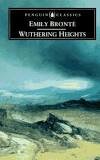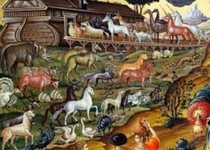Paul Whybrow
Full Member
It's drummed into writers, the importance of having a strong opening to their story. Whole books have been written emphasising how crucial the first few lines, paragraphs and pages are, to grab the attention of readers.
But, what of the closing lines, the end of a story, where an author makes a statement of some kind, even if it's through the thoughts of their protagonist? I reckon that, as quotes remembered by readers, and which go on to enter the language, last lines carry more weight than opening statements. How many people who say "Tomorrow is another day," know the source of the phrase?
Looking at famous books, these endings are variously doom-laden and optimistic:
* From The Girl Who Kicked the Hornet’s Nest by Stieg Larsson:
"She opened the door wide and let him into her life again."
* From Oh What a Paradise It Seems by John Cheever:
“But that is another tale, and as I said in the beginning, this is just a story meant to be read in bed in an old house on a rainy night.”
* From Gone With the Wind by Margaret Mitchell:
“Tomorrow, I’ll think of some way to get him back. After all, tomorrow is another day.”
* From Harry Potter and the Deathly Hallows by J.K. Rowling:
"The scar had not pained Harry for nineteen years. All was well."
* From Frankenstein by Mary Shelley:
"He was soon borne away by the waves and lost in darkness and distance."
* From The Catcher in the Rye by J.D. Salinger:
"It's funny. Don’t ever tell anybody anything. If you do, you start missing everybody."
* From Nineteen Eighty-Four by George Orwell:
“He loved Big Brother.”
* From The Heart of Darkness by Joseph Conrad:
“The offing was barred by a black bank of clouds, and the tranquil waterway leading to the uttermost ends of the earth flowed sombre under an overcast sky – seemed to lead into the heart of an immense darkness.”
* From Animal Farm, George Orwell:
"The creatures outside looked from pig to man, and from man to pig, and from pig to man again; but already it was impossible to say which was which."
I think that there's a difference between the last lines of a standalone novel and a story that's part of a series. With a one-off, an author can close the proceedings with a message that encapsulates the themes of the tale they've told in a take that way! An optimistic writer who's embarking on creating a series, may well allude to the frame of mind of their protagonist, setting them up for more adventures.
In every end, there's a beginning.
In my own Cornish Detective series, I always close with my protagonist Neil Kettle alone and contemplating life—in a way that I hope encourages readers to want to find out what happens to him next.
* Book 1: Who Kills A Nudist?: "Neil gazed at the departing jet in the distance, its exhaust condensing in the atmosphere. She'd slipped the reminder into his pocket when she pecked him a kiss. Write her? Why not?
He was starting to believe in happy endings."
* Book 2: The Perfect Murderer: "As the Chinese saying went, 'Enjoy yourself. It's later than you think.' It was time for him to be where he was again, to inhabit himself once more—he'd been missing his own life."
* Book 3: An Elegant Murder: "In a few minutes, Neil was letting himself into the front door, walking through his half-finished home to go and feed a solitary cat who would ignore him. What else did a man need?
He couldn't be happier."
* Book 4: Sin Killers: "He'd be OK. The sentimentality of the season was getting to him. At a time when we were expected to be loving and loved in return, he felt the lack. Criminals didn't care about his sorrow, and there were new cases to run, but they'd keep for tomorrow.
Lone as a mountain lion, he went off through the cold, bulleting rain back to his moorland lair."
The ending of my WIP, The Dead Need Nobody, will see my detective protagonist at death's door, having been stabbed by the murderer he was arresting, momentarily distracted by happy thoughts of the woman he's falling in love with, after seven years of widowhood. I don't know what I'll write as last lines, but it will be something about love and death.
I think it's important to come up with a stylish ending to a story, that's taken you ages to write, rather than have it come to an abrupt stop!
Do you have any favourite famous last lines from literature?
What about your own?

But, what of the closing lines, the end of a story, where an author makes a statement of some kind, even if it's through the thoughts of their protagonist? I reckon that, as quotes remembered by readers, and which go on to enter the language, last lines carry more weight than opening statements. How many people who say "Tomorrow is another day," know the source of the phrase?
Looking at famous books, these endings are variously doom-laden and optimistic:
* From The Girl Who Kicked the Hornet’s Nest by Stieg Larsson:
"She opened the door wide and let him into her life again."
* From Oh What a Paradise It Seems by John Cheever:
“But that is another tale, and as I said in the beginning, this is just a story meant to be read in bed in an old house on a rainy night.”
* From Gone With the Wind by Margaret Mitchell:
“Tomorrow, I’ll think of some way to get him back. After all, tomorrow is another day.”
* From Harry Potter and the Deathly Hallows by J.K. Rowling:
"The scar had not pained Harry for nineteen years. All was well."
* From Frankenstein by Mary Shelley:
"He was soon borne away by the waves and lost in darkness and distance."
* From The Catcher in the Rye by J.D. Salinger:
"It's funny. Don’t ever tell anybody anything. If you do, you start missing everybody."
* From Nineteen Eighty-Four by George Orwell:
“He loved Big Brother.”
* From The Heart of Darkness by Joseph Conrad:
“The offing was barred by a black bank of clouds, and the tranquil waterway leading to the uttermost ends of the earth flowed sombre under an overcast sky – seemed to lead into the heart of an immense darkness.”
* From Animal Farm, George Orwell:
"The creatures outside looked from pig to man, and from man to pig, and from pig to man again; but already it was impossible to say which was which."
I think that there's a difference between the last lines of a standalone novel and a story that's part of a series. With a one-off, an author can close the proceedings with a message that encapsulates the themes of the tale they've told in a take that way! An optimistic writer who's embarking on creating a series, may well allude to the frame of mind of their protagonist, setting them up for more adventures.
In every end, there's a beginning.
In my own Cornish Detective series, I always close with my protagonist Neil Kettle alone and contemplating life—in a way that I hope encourages readers to want to find out what happens to him next.
* Book 1: Who Kills A Nudist?: "Neil gazed at the departing jet in the distance, its exhaust condensing in the atmosphere. She'd slipped the reminder into his pocket when she pecked him a kiss. Write her? Why not?
He was starting to believe in happy endings."
* Book 2: The Perfect Murderer: "As the Chinese saying went, 'Enjoy yourself. It's later than you think.' It was time for him to be where he was again, to inhabit himself once more—he'd been missing his own life."
* Book 3: An Elegant Murder: "In a few minutes, Neil was letting himself into the front door, walking through his half-finished home to go and feed a solitary cat who would ignore him. What else did a man need?
He couldn't be happier."
* Book 4: Sin Killers: "He'd be OK. The sentimentality of the season was getting to him. At a time when we were expected to be loving and loved in return, he felt the lack. Criminals didn't care about his sorrow, and there were new cases to run, but they'd keep for tomorrow.
Lone as a mountain lion, he went off through the cold, bulleting rain back to his moorland lair."
The ending of my WIP, The Dead Need Nobody, will see my detective protagonist at death's door, having been stabbed by the murderer he was arresting, momentarily distracted by happy thoughts of the woman he's falling in love with, after seven years of widowhood. I don't know what I'll write as last lines, but it will be something about love and death.
I think it's important to come up with a stylish ending to a story, that's taken you ages to write, rather than have it come to an abrupt stop!
Do you have any favourite famous last lines from literature?
What about your own?



